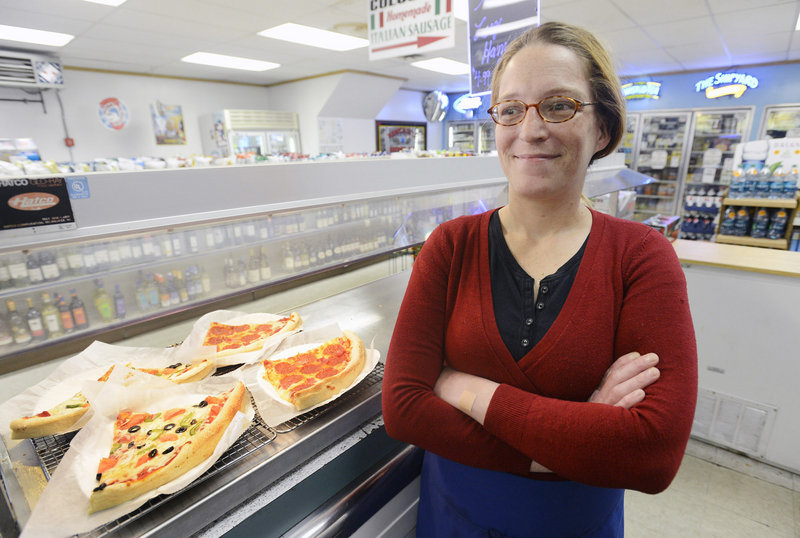Most Mainers don’t need a fresh set of statistics to tell them that the economy has languished for years.
But data being released Thursday by the U.S. Census Bureau paints a particularly grim picture.
From 2007 through 2011, the state’s median household income dropped by 7.7 percent, the number of unemployed people increased by 43 percent, and the number of people living in poverty jumped by 15 percent.
During the same five-year period, the number of Maine families who received cash assistance — either Temporary Assistance for Needy Families or General Assistance — increased by 11.6 percent and the number of Maine families who collected food stamps increased by 42 percent.
Both increases mirrored national trends, but Maine remains above the national rate for cash assistance and food stamps.
Those numbers highlight the Census Bureau’s 2011 American Community Survey, a random sampling of U.S. residents that is updated every year and is meant to offer a snapshot of annual trends in between the more traditional 10-year census figures.
The dismal data come as no surprise to some Mainers, who have seen their economic circumstances worsen over the past several years.
Take Vanessa Gilliam of Portland. Earlier this year, she was unhappy in her dead-end job as a hotel housekeeper, so she quit.
“I thought I could get another job just like that,” said Gilliam, 33. “I didn’t know how bad things were until I left.”
It took her more than three nerve-racking months to find another place to work. That turned out to be Colucci’s Market on Munjoy Hill in Portland.
“I like the job I’m in now. I feel a lot more appreciated,” said Gilliam, who lives with her boyfriend and two school-age children. “But I still struggle.”
Data often vary little from year to year, but during the period from 2007 — before the nationwide recession started — through last year, some shifts stand out.
Household income and per capita income in Maine dropped, more or less in line with national declines. Maine is still below the national rate in each category.
The dips in income coincide with cost increases, including food, gas and insurance.
Gilliam said she makes ends meet by avoiding luxuries. No cable. No smartphone.
“I’m lucky I get paid by the week, so I can balance my budget better,” she said.
More and more people are living week to week. The number of Mainers living below the poverty level increased from 12 percent in 2007 to 14.1 percent in 2011. Among Mainers without high school diplomas, one in four lived below the poverty line in 2011.
Renee Grey, 25, moved to Portland several months ago, hoping to find work. Like Gilliam, she thought it would be easy.
“Up until recently, I was living at a shelter since July,” she said.
Now, Grey is working at a group home for mentally challenged people. She just got an apartment and will receive housing assistance for as long as a year through a program offered by the Maine State Housing Authority.
“I feel lucky,” said Grey, who has a 5-year-old daughter who stayed with other family members while Grey lived in a shelter. “Others I know haven’t found jobs or places to live.”
The percentage of Maine families with children younger than 5 who live below the poverty line increased from 15.9 percent in 2007 to 22.9 percent last year. That increase was more than twice the national rate.
Dean Crocker, ombudsman with the Maine Children’s Alliance, said poverty in Maine is even worse than the numbers suggest.
“The poverty formula is old and makes certain assumptions about costs of living that aren’t accurate in today’s world,” he said. “People are living on a lot less than it takes to get by.”
Crocker said the poverty rate among families with young children is particularly troubling.
“Some want to criticize Maine as a ‘nanny state,’ but I don’t know many 1- or 2-year-olds who come with bootstraps,” Crocker said. “We can be upset at parents, but we can’t harm children.”
Gilliam said she has benefited from public assistance, more for her children than herself, and will continue to do so as long as she is eligible.
“There are times when, economically, you just can’t make it,” she said. “You need help. And it’s good to know those resources are there. It makes working so hard to find a job a little easier.”
Jon Bradley and Donna Yellin, who work for the Preble Street Resource Center, a homelessness and hunger prevention organization in Portland, said the numbers reflect what they see every day. More Mainers than ever are hurting economically. More are unemployed. More need assistance.
“We’re seeing people in need of housing and food assistance that we’ve never seen before,” Yellin said.
Added Bradley: “In a stronger economy, many of these people disappear.”
Staff Writer Eric Russell can be contacted at 791-6344 or at:
erussell@mainetoday.com
Twitter: @PPHEricRussell
Send questions/comments to the editors.





Comments are no longer available on this story